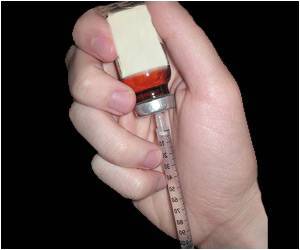New laboratory research suggests that lithium and other drugs that inhibit a particular enzyme, GSK-3 beta, should be used with caution in treating Alzheimer's disease.
New laboratory research suggests that lithium and other drugs that inhibit a particular enzyme, GSK-3 beta, should be used with caution in treating Alzheimer's disease because too high a dose can impair, rather than enhance, neuronal function.
Lithium is currently in clinical trials for treating Alzheimer's. Pharmaceutical companies are interested in producing other GSK-3 beta inhibitors for the disease because these drugs are relatively easy to make and lithium has been shown to be safe in low doses in treating people with manic-depressive illness, said Dr. William D. Snider, professor of neurology, cell and molecular physiology at the University of North Carolina at Chapel Hill's School of Medicine."People might think that if you make the inhibitor stronger and stronger, that would be better. Our in-vitro experiments show that you will have to be careful with how you use GSK-3 beta inhibitors, because if you use too much, it will interfere with and possibly kill neurons," said Snider, who also is director of UNC's Neuroscience Center.
The results, published online Thursday (Dec. 21) in the journal Neuron, were surprising because GSK-3 beta inhibitors have been shown at some doses to improve neuronal function. "It's known that when GSK-3 beta is inactivated that tends to allow the processes inside the cell it regulates to function normally," Snider said.
But when the researchers strongly inhibited GSK-3 beta in mouse neurons in cell culture, the growth of axons, which carry messages between nerve cells, was markedly reduced.
The researchers inhibited GSK-3 beta using RNA silencing. "RNA silencing allows you to specifically knock down the level of a particular protein inside the cell," Snider said.
In a second set of experiments, the researchers treated mouse neurons with a low dose and a high dose of a GSK-3 beta inhibitor similar to lithium. The high dose impaired neuronal function, while the low dose improved it.
Advertisement
SRM






